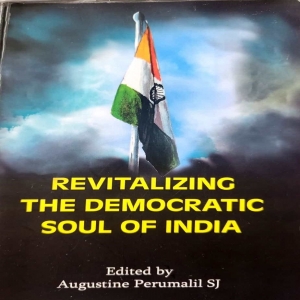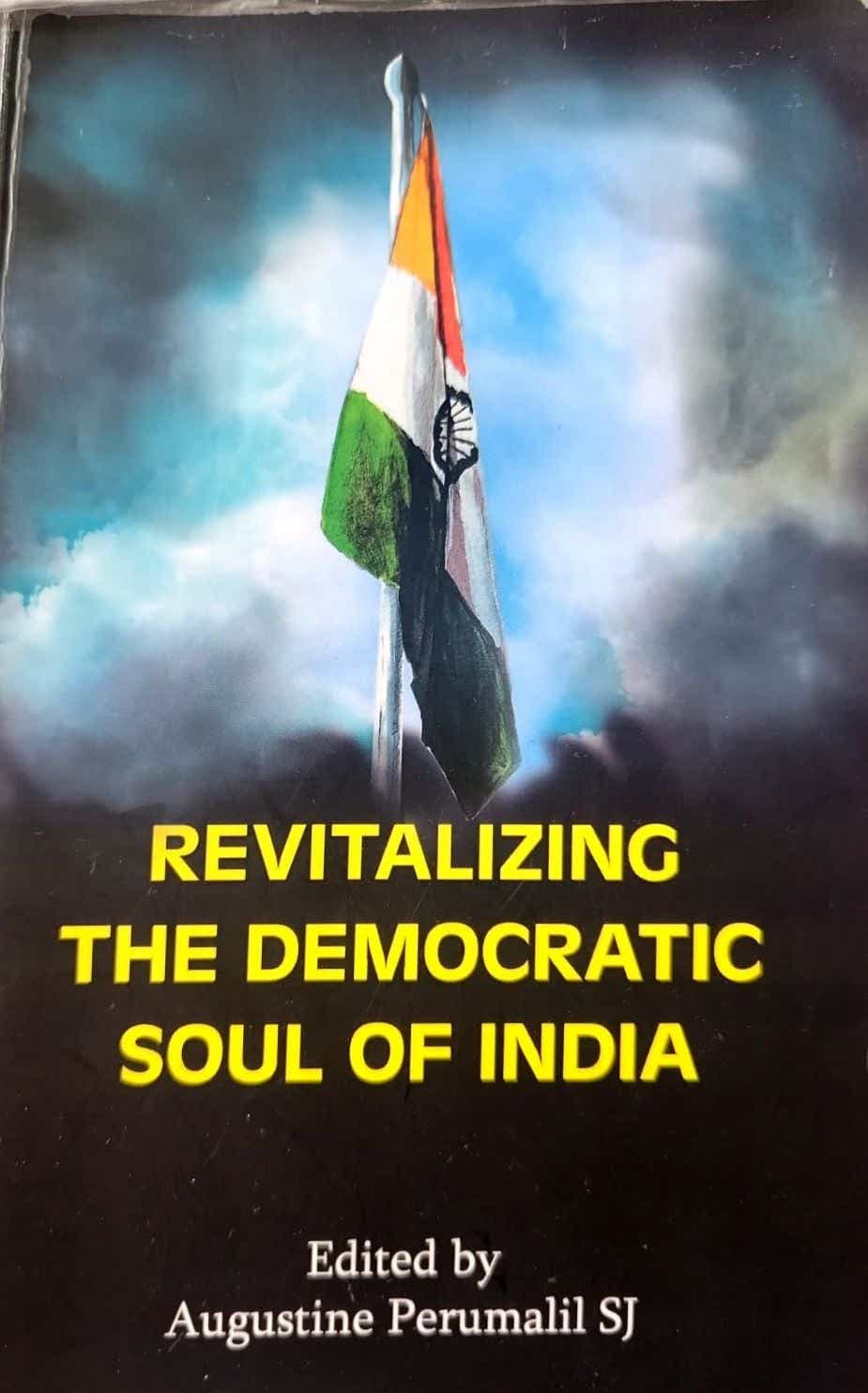
.png) Dr. Minakshi Sardar
Dr. Minakshi Sardar

Plurality, inclusiveness, and tolerance have always been the essence of India, and they are manifested through its deeply rooted cultural and traditional diversities. The idea of a sovereign, socialist, secular, democratic republic based on justice, equality, liberty, and fraternity has been the essence and founding ethos of the Indian Constitution. India celebrates and promotes diversity, heterogeneity and plurality across the country. This essence of 'unity in diversity' makes India unique and distinct as a democratic state in the global South.
This edited book, "Revitalizing the Democratic Soul of India", is a timely and relevant exploration of the challenges to democratic values in contemporary India. The individual chapters are in complete sync, echoing in a similar tone, a common theme throughout the book. It has been structured into seven chapters covering various themes, all particularly pertinent to India's socio-political climate. To mention a few themes: The fundamentals of Indian constitutional democracy, the vision of Gandhi, changes and diversions from democratic ideals, the challenges to Indian democracy, and the need for and importance of dialogue.
The common concern expressed throughout has been how Indian society in contemporary times has been characterised by divisive forces, injustice, lack of constitutional morality, and communal tension, thereby blurring the very inclusive foundational ethics of the Indian constitution. This work addresses the causes of deviation from Democratic principles of freedom, equality, fraternity, liberty and justice. It elaborates on how Indian society at present has been polarised owing to the ruling ideology of the regime and how the emergence of such fascist ideals has challenged the basic principles of secularism, pluralism, multiculturalism and inclusivity in Indian democracy. The book highlights how binaries have been created on religious and ideological lines with support from the regime.
Perumalil, drawing insights from the works of Bipin Chandra and Amaury de Riencourt, deals deeply with defining the term "soul of India" as an intermingling of various facets that have been evolving. The author begins by identifying that the idea of the "soul of India" has been a dynamic phenomenon that constantly changes and requires conscious shaping and reshaping for the welfare of humanity and the state. Lancy Lobo elucidates on the political paradigm shift, highlighting the contradictions in Nehru's vision of India and the Modi regime. He illustrates these across four domains: Religion having contradictions between Hinduism and Hindutva; Socio-Cultural having contradictions between the interest of the majority and the minorities; Economics having contradictions between growth and equity; Politics having contradictions between electoral and substantive democracy. Similarly, Chathanatt addresses how democratic values of pluralism, inclusivity and humanity, as belief in India's spirit and vision, have been abused and threatened due to the rise in intolerance and religious fundamentalism.
The second segment of the book deals with the way forward in reviving the founding principles of democracy. It outlines various challenges to Indian democracy and portrays a positive approach to countering polarisation. It takes shelter into the rich heritage of the country's past, the ideals of Gandhi and Nehru, and delves into the democratic ideals they envisioned. D Almeida highlights ways to strengthen democracy by revisiting Gandhi's concepts on ahimsa, sarvodaya and ram-rajya. Job Kozhamthadam gives a glimpse of the historical, cultural, and spiritual essence of India's rich ancient tradition and heritage, as well as its hospitality, tolerance, and plurality. The author highlights the role of eminent personalities like Vivekananda, Gandhi, and Guru Nanak, which encompass several aspects of progress and human values and promote tolerance, harmony, cooperation, and collaboration among various communities. In today's world of globalisation, "it is becoming more and more evident that great advances are brought about not so much by isolated efforts, as by collaborative efforts of talented, committed and open-minded experts."
Victor Edwin showcases India's fascinating cultural, religious, and social heterogeneity and addresses the communal chaos caused by exclusivist ideologies in the country. He highlights the two contrasting visions: the secular nationalist approach advocated by Nehru and Tharoor that promotes the idea of inclusivity and pluralism, and the vision of Hindutva advocated by Savarkar that envisions a homogenous Hindu identity of India. Mlakuzhyil enquires about the trajectories of Indian democracy and infers that the deteriorating state of democracy in India is exacerbated by the Modi government. He notes that democracy under the present regime has been challenged by suppression of minorities, restrictions to freedom of speech and ex
This edited volume significantly contributes to understanding the present situation in India. The book highlights the pressing challenges the country has been grappling with. It compiles the perspectives of seven contributors, providing a deep understanding of the founding principles of Indian Democracy and how it has evolved, persisted and been challenged under the present Modi regime. The book, resonating with the common concern of the masses and intellectuals on the future of Indian democracy, plays a pivotal role in raising political consciousness. It aims to make its readers acutely aware of the existing challenges to the ethos of democracy in Contemporary India. The book has been partially provoked by the urgent need for the masses to ponder the current situation in India under the Modi government.
The book very rightly strikes at the core problem or challenge to Indian democracy in the Modi regime - defining India through the lens of "ethno-religious nationalism". It will appeal to diverse fields and social categories like students, researchers, academicians, policymakers, minority groups and civil society groups. It can be a good addition for those concerned about the deteriorating situation and every politically conscious citizen of India. The concern expressed in the volume appeals to revisiting the spirit and principles of Indian democracy. A call to awaken the Indian citizens resonates with Tagore's vision of "where the mind is without fear, and the head is held high…. where the world has not been broken down into fragments by narrow domestic walls".
(This book is available in print and as an e-book from Media House, Delhi.)
Dr Minakshi Sardar, Assistant Professor at the Indian Social Institute, Delhi.